María Eugenia Vidal says that her return to the Federal Capital does not mean that she is set on a run for City mayor in 2023.
The 47-year-old maintains that after having been governor of Buenos Aires Province, she could hardly aspire much higher apart from the presidency. She recognises that it is very early to speak of that though.
Vidal returns thinking of a national project which both includes and transcends the City. In her eyes these midterms are inscribed in that logic – a plebiscite on the Frente de Todos government, confronting two models which, in her judgement, are more than ideological.
Have you noticed a hostile attitude in the people most opposed to Kirchnerism, since it was revealed that you would be a candidate in the City?
Some of our voters were expecting Patricia [Bullrich] to be the candidate with me running in Buenos Aires Province. It was an uncomfortable situation which I took on board. I’m really convinced of the decision I took – my biggest contribution would be in the City of Buenos Aires. We have 10 seats up for grabs, which to hold would require 60 percent or more of the City vote – a real challenge.
Every seat which Juntos por el Cambio cannot hold will go to Frente de Todos. We need as many votes as possible in the City and I value the gesture of Patricia very highly. Such gestures of grandeur are not frequent in politics. She showed her face at a very difficult moment. In this debate over how to act, she did what was best for the big picture, which was to accompany the candidates nationwide with me as their head here. This is an anticipation of the maturity of Juntos por el Cambio.
Did she understand that better than the coalition extremists?
There is a unity which was consolidated at the most difficult moment, when we lost the election. We’re the first opposition to a Peronist government to remain united since the return of democracy. We’re presenting candidates jointly under the Juntos por el Cambio label in 21 of the 24 districts, over and above whether there are PASO primaries or not. It’s a way of showing that we continue to represent that 41 percent who voted for us [in 2019]and that we want to be the alternative for more Argentines.
There are common values within that unity beyond the diversity of ideas. We defend without restriction liberty, the republic and the separation of powers along with education as a value for progress united with work, meritocracy and effort. That’s what we have in common – beyond that we might differ over specific ideas. Even so we will defend all Argentines the same way in Congress. We have been put to the test and we’ll come out stronger.
It is said that Mauricio Macri said to you that “you passed from being a lioness to being a pussy cat.” Was he upset over your defying his opinion?
I’ve had disagreements with Mauricio as long as we’ve been linked. Luckily our bond goes beyond those disagreements. I wouldn’t want ours to be a homogeneous party where only one opinion prevails. It often causes discomfort when we women in politics make our own decisions – I’m not talking about Mauricio in particular but in general. Making our own decisions carries a heavier cost for us than for males. I’m not the first and, unfortunately, I’m not going to be the last but I’ve made my decision from my most profound convictions. I’m at peace.
As a deputy I will represent all Argentines. The Constitution is clear – the deputies represent the nation. My duty is to defend the citizenry whether here, in Buenos Aires Province, Salta, Jujuy or anywhere. In Congress over the next two years we won’t be debating particular issues of this city or BA Province but the structural problems of the whole country: inflation, unemployment, the unbearable tax burden, fundamental freedoms and the attempts at judicial reform. These are problems which affect everybody, not just a district.
Let us assume that in 2023 [Juntos por el Cambio] wins nationwide and gets to govern the country. Would one of the differences with the government starting in 2015 be seeking agreements with the opposition on a different basis than you did [as governor] in Buenos Aires Province?
There is no other road to structural reform than constructing agreements. Imposing reforms via Congress votes is no use because it does not reflect real support. Such structural reforms weaken rapidly. Besides we cannot have presidents who refound Argentina every time they reach power. We cannot construct anything solid over time.
Argentina needs to grow for 20 or 30 straight years, something which has not happened for almost a century. We have to build consensus, which is something much more than an agreement between a couple of parties – it’s an agreement of all society. We cannot make U-turns every four years – no country can grow that way. I’m not talking about any distant countries – I’m referring to Uruguay, Chile and Peru. Beyond the political profile of the president, those countries have economic agreements which cannot be altered.
I imagine a table in 2023 seating those defined by the people without their being able to choose the other participants. That would be truly democratic. I represent what is considered a truly democratic and republican force. For that to be so, we cannot choose who sits at that table with us but must understand that the others seated have been chosen by the people. More than 40 percent of us are below the poverty line with even more children [six out of every 10] poor with 200,000 lost jobs bringing private-sector employment down to an all-time low. We have not created any genuine private-sector jobs in the last 10 years. If we cannot understand that any economic model must be based on exports and private-sector jobs and that inflation cannot be the solution to our failure to agree on priorities, nor running up debt, which has its limits, and if we cannot plan a clear path ahead, then we have a problem. We will have a historic responsibility if the people elect us once more.
The phrase “Let’s change” expresses a different diagnosis. In 2015 it was credible, with good intentions, as a drastic change being necessary. Today, on the basis of experience, the idea is that in reality the processes of convergence need to be more moderate.
Luckily Argentines are realising that there is no easy way out nor magic formulae, something which the leadership is also taking on board. There is a realistic road, along which Argentina has all the conditions to travel, but we must take into account that it will take a long time. The merit of the next government will probably be to build consensus as to the bases of that path.
We politicians must also understand that sometimes we end up being part of the result and sometimes part of a process which is necessarily long so that we will not initially feel the positive aspects of that path. For a start it will end the uncertainty as to where we are heading by giving us a course, a plan, permitting us to think of a future. For the last 18 months we’ve lived in uncertainty, in part due to an unknown pandemic but also to the decision to improvise the handling of the pandemic which deepened the uncertainty created by the virus. That is what happened in Argentina. There is concrete evidence for that. The most striking is that it has taken seven or eight months, for whatever reason, for children with pathological problems to access the only vaccine for them on the market. There are other similar facts showing improvisation and the absence of a plan.
In contrast, City Hall has marked out a path. Firstly, a serious and professional administration basing itself on evidence and data, headed by somebody like Fernán Quirós, who never fell into the trap of politicising the pandemic. There were testing centres and protocols to alleviate the restrictions of lockdown, as in the other countries which handled the pandemic well, with schools kept open as much as possible, thus also limiting the damage to children confined to their homes. That is a style of government we should also adopt as from 2023 and would that this national government adopted it beforehand. Until now they have shown themselves to be the complete opposite. You have to govern by telling the truth without scolding anybody or looking for culprits.
Is society shifting towards the middle? Do you note differences from 2015 when you hit the streets?
There is a society demanding concrete answers.
With less ideology?
Definitely. Concrete, rational, well-founded answers, not magic fantasies. The people don’t want any more narrative, they’re worn out. [It’s] Probably one of the saddest and most dispirited moments in Argentina since 2001.
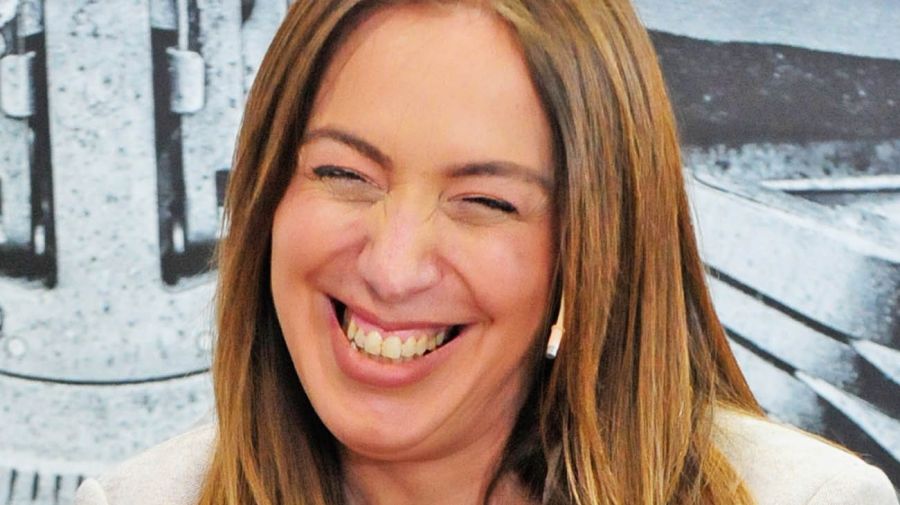
You said at one point that Radical party chairman Alfredo Cornejo was on the right. Does the emergence of [Facundo] Manes now shift the Radicals to the centre?
Facundo expressed that publicly. What is occurring within Radicalism is also good, it’s good that they’re stronger. I agree with [Senator] Martín Lousteau that a stronger Radicalism makes Juntos por el Cambio better. It is good that all the parties forming Juntos por el Cambio grow. Our representation must be broader. Our City list with Martín Tetaz and Paula Olivetto but also with Fernando Iglesias or Sabrina Ajmechet, the incorporation of [Ricardo] López Murphy shows greater breadth. Ditto for Buenos Aires Province and all the districts with PASO primaries. That has to be our construction towards 2023, that is demanded of us. We have to listen and learn more, instead of withdrawing into ourselves.
Some analysts of political communication point out that there is a change of tone in your communicative style, that you have passed from more affectionate and sensitive forms to laying greater emphasis. Is that part of a process of political evolution?
I’m me, what you see is what you get with all my strengths and weaknesses. These are demanding times. One thing is being a governor making decisions and being able to define a course while being in opposition is quite another. My role is to mark out what is wrong, placing limits on what affects our values and lifestyle.
You have to be very firm. We are discussing problems we did not have 18 months ago. Not only have the ones carried over not been resolved but wages lag behind inflation, pensions have plunged, the economic problems have not been resolved but also we now have new problems to discuss.
We never had problems with foreign policy before in Argentina, it was quite clear that Argentina was integrated into the world and on the side of democratic countries. Today we are isolationist and defending Cuba, Nicaragua and Venezuela.
It used to be quite clear that kids had to be in school, we only discussed how to get them to learn more and better. Only last week could we get Buenos Aires Province, after overwhelming evidence in favour, to reopen its schools with the same happening in many other places. Santa Cruz was two whole years without any public education.
We have new problems which define our lifestyle and that requires additional firmness. There was never any discussion before as to whether convicted criminals belonged in prison. Releasing over 2,000 convicts without any justification was very serious, as is also the retreat in the war on drug-trafficking waged by Patricia Bullrich and Mauricio.
Since our last pre-electoral interview while you were still governor, I remember asking you what had changed in those last two years of having been governor? By now you must surely have had time to reflect on this question.
The first thing I would say is this – I have indeed recovered the capacity to reflect. When you have a post with so much responsibility and so many problems to resolve which cannot wait, you lose that capacity. Being out of power helps. The second thing was learning how to win and lose. For 20 years straight I held critical posts in the public sector. From 2007 through to 2019 I was on the winning side in every election in which I participated. Losing an election was an enormous learning curve, permitting me to be much more independent from power. I know what it is to have enormous responsibility and also what it is to be a common citizen working in the private sector. Passing through both those contrasts was educational. It will give me much more fibre and focus when it is again my turn to occupy a position of power. I’ll be looking at power with more perspective.
In that interview I also asked you about your presidential ambitions and your reply was: “Let [City Mayor Horacio] Rodríguez Larreta take care of that, what I want is a boyfriend.” Did you need those two years to get your personal life back together?
Without a doubt. The years in Buenos Aires Province were difficult. It was also the most transformational experience in my life. I don’t play the victim, I chose it and if I had to do it all over again, I would, together with each and every one of the battles I had, despite their costs. The pandemic, which for many people signified lockdown and a loss of freedom, allowed me to be a mother around the clock. It was a very good reunion. It also gave me time to start life in a new couple. When you have somewhere to return every night and a solid family, it makes you a better politician. As in any other job when you have your love life securely anchored, everything’s better.
There are Peronists on both sides and both coalitions play both left and right with progressives and conservatives on both sides. What is the element keeping each coalition together?
There are very profound differences. Frente de Todos expresses a vision of power rather than the country, at least through to 2015. They promised to return better and demonstrably did not. Juntos por el Cambio is an electoral and political coalition which has come to stay in Argentina and which aims to govern with a vision of the country. From the way it is broadening and strengthening the coalition, it is showing today that it has learned. I’m convinced that it will return better from what it has learned.
These differences are not minor. Juntos por el Cambio has a structural commitment to honesty and the defence of the republic which I do not see in Frente de Todos. Of course there are also honest people in Frente de Todos but I do not see that same commitment.
In this series of interviews, the historian Ernesto Semán pointed out that, like early Peronism, early Kirchnerism was based not only on redistribution but also on the bid to construct a narrative [“relato” is the word in Spanish]. What would be the opposing narrative?
Beyond its narrative, Frente de Todos wants a country with an abject, poor and uneducated citizenry. Juntos por el Cambio offers a country with a free and autonomous citizenry and a capacity for progress on the basis of effort, work and education. They are two completely different countries, as evidenced by public debate, not just the last 18 months.
During our government the governors regained funds. We did not apply carrots and sticks. The Cabinet chief went every month to Congress to explain policy. There was a different culture of power and institutions, a real commitment to transform determined realities, including mafias and corporate interests. They are not two different narratives, they’re two different countries.
There is an issue of aesthetics, not in the usual sense but rather ethical – the different background forms. When Graciela Camaño said: “I’m sick of the neat and tidy,” she was alluding to Cambiemos and tracing a frontier with the truth as understood in a rational manner – what Pierre Bourdieu might call “habitus.” Does that difference establish the limit?
There are underlying issues. Like when they say: “The fatherland is other people” but the first to immunise themselves when vaccines were scarce were their militants. That’s not an isolated fact. The social networks are full of photos nationwide of teenagers flashing V-signs as they receive their vaccines while millions of the elderly facing the risk of death are left waiting. Such things are ideological, not moral, and that is a difference beyond redemption.
Some questions are not negotiable. Just as I said we cannot refound Argentina every four years when every president taking office says that everything done by the preceding administration was totally destructive and that we must start from scratch, so there are questions which mark clear limits.
The mafia also has its morality, there are good and bad. How do you explain to a university student the absolute differences?
In the City of Buenos Aires we didn’t see anybody jumping queues, as the president says trying to minimise the offence. That didn’t happen. That was because there was a decision of the political grouping headed by Rodríguez Larreta in that sense.
Of course there are people who misbehave. But one thing is that it is exceptional and another that it is both generalised and celebrated without any self-criticism. Treasury Prosecutor Carlos Zannini said that it was a pity that he and his wife hadn’t taken any photos while they were being vaccinated. For him it was no error – an error is when you define a policy and it fails, something which can happen to any government. But it’s very different when a generalised conduct is ethically incorrect and yet defended.
So is the other side less attached to the norms?
I have no doubt that there is an affinity with privilege, as explained by Zannini when he said that Horacio Verbitsky needed protection more than others, as if there were social strata which needed protection more than others. He thus endorses privilege, to which should be added the double talk of all this on the one hand and the talk of the fatherland being other people on the other. That narrative is full of holes.
You have many elections ahead of you. Would Horacio Rodríguez Larreta be the best suited to be the 2023 Juntos por el Cambio presidential candidate?
I think that it’s too early to tell. I’ve no doubt that he’s well equipped like many others in Juntos por el Cambio. That is a coalition asset – having more than one presidential candidate. It makes us more mature and solid.
You are placed among those presidential hopefuls.
Yes.
That is a different answer to the one you gave me on another occasion. Might it not be supposed that your immediate aim would be to become City Mayor?
That’s not my objective. I came to the City to give battle at the national level, for Congress. I said that I’d like to be president someday, without being desperate. That’s a post I’d like to hold. After being Buenos Aires Province governor, there are few posts carrying so much honour. These days I’m not in the mayoral fight.
We have to construct a more solid national force. In 2023, it must be in the best possible condition to win. Just as these midterms are not just another election, neither is 2023. My commitment will be to a Juntos por el Cambio victory. For that I’ll sit down and we’ll listen to the people and define the best place for each one of us.
Would a real or symbolic defeat in November make Kirchnerism lose political weight while traditional Peronism grows, or would Kirchnerism become more radical?
I don’t know. If the government wins this election, we can only expect it to become more radical without brakes. If the government loses and still decides to go radical, there will be brakes in the form of Chamber of Deputies numbers. That is what must be kept in mind.
I hope that if the government loses, it understands the message from the people and acts in consequence. I don’t want to tell Argentines that they will have to wait for a Juntos por el Cambio government for things to be better. If the people send a message in this election to alert the government, I hope that the government reflects, reconsiders and constructs a structural plan to pull the country out of where it is now.
Is there anything I have not asked you which you would like to add?
I think it would be good to take advantage of this space to say that there are proposals and that this oppressive and disappointing scenario is not everything. We’re going to Congress to place limits on any situations of trampling on liberty and democracy but also to discuss the issues which are the most important for Argentina: education and employment. We’ll push an educational emergency law with parent participation in the decision-making. Parents have surged forth in this pandemic as actors demanding a role. Educational reforms in Argentina have always been thought out by the governments, the trade unions and the experts. It’s high time we added the parents.
We also have to change Argentina’s tax system, not only by not voting more taxes to strangle the productive sector, like the 16 taxes which the government has hiked or created on production in the last year, but also to see how we can lighten the burden for those who want to produce.










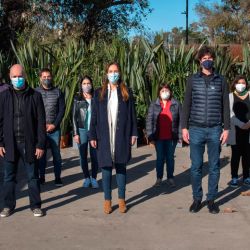
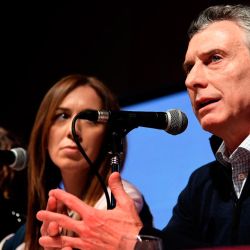
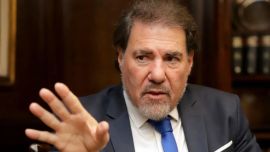






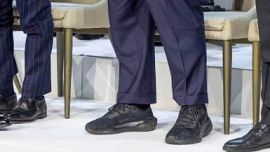


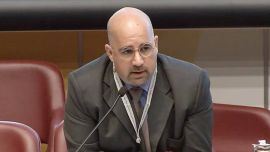
Comments